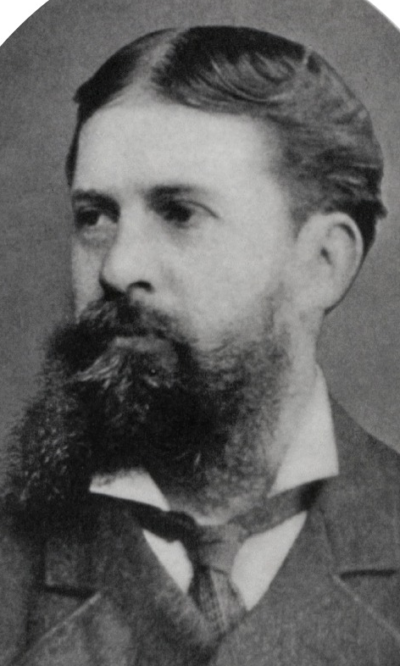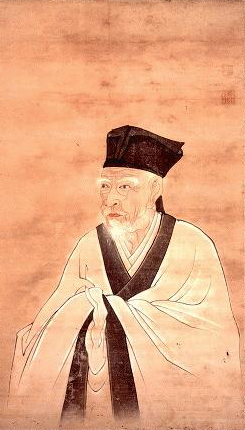チャールズ・パース プラグマティズムの父:その思想と貢献に迫る

Charles Peirce: The Father of Pragmatism – Exploring His Ideas and Contributions
イントロダクション
プラグマティズムの父として知られるチャールズ・パースは、19世紀のアメリカの哲学者であり、論理学者でした。
彼の思想と貢献は、現代の哲学や認知科学にも大きな影響を与えています。
パースの主張は、知識や真理は実践的な経験と密接に関連しており、それを通じて人々は世界を理解し、行動することができるというものでした。
彼の思想は、抽象的な考え方や理論だけでなく、実際の現象や行動にも焦点を当てるという点で革新的であり、その影響力は今日でも続いています。
この記事では、パースの思想や貢献について詳しく探っていきます。
Introduction
Charles Peirce, known as the father of pragmatism, was an American philosopher and logician in the 19th century.
His ideas and contributions have significantly influenced contemporary philosophy and cognitive science.
Peirce argued that knowledge and truth are closely related to practical experience, through which people can understand and act upon the world.
His philosophy was innovative in focusing not only on abstract thinking and theory but also on actual phenomena and behavior, a perspective that continues to exert influence today.
This article delves into Peirce’s thoughts and contributions in detail.
チャールズ・パース:その生涯と貢献
チャールズ・パースはプラグマティズムの創始者として知られています。
彼の生涯と貢献について見ていきましょう。
チャールズ・パースの生涯は多くの試練と困難に満ちていました。
彼は米国沿岸測量局で働くなど、幅広い経歴を持っていました。
この経験は彼の思考に大きな影響を与えました。
米国沿岸測量局での経歴は、パースの観察力と論理的思考を養うことになりました。
彼は測量技師として働きながら、自然科学や数学について学びました。
大学と追放の時期は、パースの思想形成に大きな影響を与えました。
彼はハーバード大学で学び、哲学の教授としても働きました。
しかし、彼の思想は当時の学界で受け入れられず、追放されることになりました。
貧困と離職の時期は、パースにとって苦難の時期でした。
彼は経済的な困難に直面し、何度も仕事を辞めざるを得ませんでした。
しかし、これらの困難な経験が彼の思想に磨きをかけることになりました。
チャールズ・パースの生涯と貢献は、彼の経験と困難から生まれたものです。
彼のプラグマティズムの思想は、現代の哲学や社会科学に大きな影響を与えています。
彼の思考は、現実の問題解決に焦点を当て、実践的なアプローチを提案しています。
パースの貢献は、彼の時代だけでなく、現代の社会においても重要なものです。
米国沿岸測量局での経歴
チャールズ・パースは、プラグマティズムの創始者として知られる哲学者です。
彼の生涯と貢献について詳しく見ていきましょう。
米国沿岸測量局での経歴についてですが、パースは若い頃にこの局で働いていました。
彼は測量技師としての仕事に従事し、地理的なデータの収集や地図の作成などに関わっていました。
この経験は、後の彼の哲学的な思考に大きな影響を与えたと言われています。
測量局での仕事を通じて、パースは客観的なデータの収集と分析の重要性を学びました。
また、彼は観察と実験に基づく科学的なアプローチを重視するようになりました。
このような経験が後の彼のプラグマティズム思想の基盤となりました。
パースは、真理や知識は実践的な効果によって判断されるべきだと主張しました。
彼は理論よりも実際の経験や実践的な結果を重視し、それが真理や知識の基準となるべきだと考えました。
米国沿岸測量局での経験は、パースのプラグマティズム思想の形成に大きく貢献したものでした。
彼の思想は後の哲学や社会科学の発展にも大きな影響を与えました。
大学と追放の時期
大学と追放の時期について、チャールズ・パースの生涯と貢献に迫ります。
彼はプラグマティズムの創始者として知られています。
大学時代、パースは数学と天文学を学びました。
しかし、彼は学問の世界での地位を確立することができませんでした。
彼の思想は当時の伝統的な哲学とは異なっていたため、多くの教授たちからは理解されず、追放されることとなりました。
この時期、パースは多くの困難に直面しました。
彼は貧困に苦しみ、仕事を転々とすることが多くなりました。
しかし、彼は自身の思想を追求し続けました。
彼はプラグマティズムという新しい哲学的アプローチを発展させ、後の哲学者たちに多大な影響を与えました。
パースの大学と追放の時期は彼の人生において重要な節目であり、彼の思想の形成に大きな影響を与えました。
彼の貢献は今でも哲学の世界で高く評価されており、彼はプラグマティズムの父として称えられています。
貧困と離職の時期
チャールズ・パースは、プラグマティズムの創始者として知られる哲学者です。
彼の生涯は、さまざまな困難や試練に満ちていました。
貧困と離職の時期については、彼の人生において重要な節目となりました。
パースは、苦しい経済状況に直面し、生活に困窮しました。
この時期に彼は、仕事を辞めざるを得なくなりました。
パースは、貧困と離職の経験を通じて、人間の経験や社会の現実に対する洞察を深めました。
彼は、これらの困難な時期を乗り越えるために、自身の思考や哲学を研究し、発展させました。
パースの貧困と離職の時期は、彼の思想や貢献に大きな影響を与えました。
彼は、人間の経験や社会の問題に対して、実践的なアプローチを提案しました。
彼の思想は、人々が現実の問題に対処するために、実用的な方法を見つけることを重視しています。
Here are the English translations:
Charles Peirce: His Life and Contributions
Charles Peirce is known as the founder of pragmatism.
Let’s take a look at his life and contributions.
Charles Peirce’s life was filled with many trials and challenges.
He had a diverse career, including working at the United States Coast Survey.
This experience greatly influenced his thinking.
His tenure at the United States Coast Survey cultivated his observational skills and logical reasoning.
While working as a surveyor, he also studied natural sciences and mathematics.
His university and expulsion period significantly influenced Peirce’s philosophical development.
He studied at Harvard University and also worked as a philosophy lecturer.
However, his ideas were not accepted in the academic community at the time, leading to his expulsion.
Times of poverty and unemployment were difficult for Peirce.
He faced economic hardships and had to quit his job multiple times.
Nevertheless, these challenging experiences honed his philosophical ideas.
Charles Peirce’s life and contributions stem from his experiences and hardships.
His pragmatist philosophy has had a significant impact on modern philosophy and social sciences.
His thinking focuses on practical approaches to solving real-world problems.
Peirce’s contributions are important not only in his time but also in contemporary society.
Career at the United States Coast Survey
Charles Peirce is a philosopher known as the founder of pragmatism.
Let’s take a closer look at his life and contributions.
Regarding his career at the United States Coast Survey, Peirce worked for this agency in his youth.
He worked as a surveyor, involved in tasks such as collecting geographical data and creating maps.
This experience is said to have significantly influenced his later philosophical thinking.
Through his work at the survey, Peirce learned the importance of objective data collection and analysis.
He also began to emphasize a scientific approach based on observation and experimentation.
Such experiences formed the foundation of Peirce’s pragmatist philosophy.
Peirce argued that truth and knowledge should be judged by practical effects.
He believed that practical results, rather than theories, should be the criteria for truth and knowledge.
His experience at the United States Coast Survey greatly contributed to shaping Peirce’s pragmatist philosophy.
His ideas continued to influence the development of philosophy and social sciences.
University and Expulsion Period
Let’s delve into Charles Peirce’s life and contributions during his university and expulsion period.
He is known as the founder of pragmatism.
During his university days, Peirce studied mathematics and astronomy.
However, he struggled to establish a position in the academic world.
His ideas diverged from traditional philosophy of the time, leading to misunderstandings and ultimately expulsion from many professors.
During this period, Peirce faced many difficulties.
He experienced poverty and had to change jobs frequently.
Nevertheless, he continued to pursue his own thoughts.
He developed a new philosophical approach called pragmatism, which greatly influenced later philosophers.
Peirce’s university and expulsion period were crucial milestones in his life, significantly influencing the formation of his ideas.
His contributions are highly regarded in the world of philosophy, and he is celebrated as the father of pragmatism.
Periods of Poverty and Unemployment
Charles Peirce is a philosopher known as the founder of pragmatism.
His life was filled with various difficulties and trials.
Regarding periods of poverty and unemployment, they were pivotal moments in his life.
Peirce faced economic hardships and struggled to make ends meet.
During this time, he had to quit his job several times.
However, these experiences of poverty and unemployment sharpened his insights into human experience and social realities.
He used these challenging periods to deepen his own thinking and philosophy.
Peirce’s periods of poverty and unemployment had a profound impact on his philosophical ideas and contributions.
He emphasized practical approaches for addressing human experiences and societal issues.
His philosophy underscores finding practical solutions to real-world problems.
パースの思想:プラグマティズムの創始
プラグマティズムとは?
プラグマティズム(Pragmatism)は、19世紀末から20世紀初頭にかけてアメリカ合衆国で興った哲学的な思想の一派です。
この立場の中心的な概念は、「真理は実用性によって評価される」というものです。
プラグマティズムの哲学者たちは、ある考えや理論が実際の経験や行動にどれだけ役立つかを重視し、それが問題を解決し、行動を導く手段として機能する場合にのみ、その考えを有益と見なす立場をとります。
プラグマティズムの特徴的なアイデアとしては以下の点が挙げられます。
実用主義: 真理や価値は実践的な利益や効果に基づいて評価されるべきだという立場をとります。
ある考えや理論が実際の問題解決に寄与するならば、それが有益であると見なされます。
経験重視: 経験が哲学的な理解や知識の基盤であると考えます。
経験に裏打ちされた知識が実用的であるとみなされ、抽象的な理論や概念よりも実際の現象や出来事に焦点を当てます。
未来志向: 未来の行動や結果を重視します。
ある考えや行動が将来的に良い結果をもたらす可能性が高い場合に、それを選ぶことが重要だと考えます。
代表的なプラグマティズムの哲学者には、ウィリアム・ジェームズ(William James)、ジョン・デューイ(John Dewey)、C.S. ピアース(Charles S. Peirce)などがいます。
これらの哲学者たちは、プラグマティズムを通じて、哲学を実践的で現実的なものにし、日常生活において有益なアイデアを追求しました。
プラグマティズムの創始者
チャールズ・パースは、プラグマティズムの創始者として知られています。
彼の思想は、2つの主要な要素で構成されています。
まず、プラグマティズムの格率です。
パースは、真理や知識は実践によってのみ確立されると主張しました。
彼は「思考は行動のための準備であり、真理は実践の結果である」と述べています。
次に、現象学やカテゴリー論に関するパースの思想です。
彼は、人間の知覚や認識は経験に基づいており、それによって現実を理解することができると考えました。
また、彼はカテゴリー論を通じて、私たちの思考や言語が現実をどのように形成するかを研究しました。
さらに、パースは規範学にも関心を持っていました。
彼は美学、倫理学、論理学、記号論などの分野を探求し、それらが私たちの価値観や行動に与える影響を明らかにしました。
最後に、パースの思想には形而上学も含まれています。
彼は偶然主義や連続主義、客観的観念論、進化的宇宙論、実念論などの概念を提唱しました。
これらの概念は、宇宙や存在の本質についての彼の考えを表しています。
Here is the English translation:
Peirce’s Philosophy: The Genesis of Pragmatism
What is Pragmatism?
Pragmatism is a philosophical movement that emerged in the late 19th to early 20th century in the United States.
At its core, pragmatism emphasizes that “truth is evaluated by its practicality.”
Philosophers of pragmatism prioritize how well an idea or theory contributes to actual experiences and actions, considering it beneficial only if it solves problems and guides actions.
Key ideas of pragmatism include:
- Practicalism: Truth and value should be evaluated based on practical benefits and effects.
- Experience-orientation: Experience forms the foundation of philosophical understanding and knowledge. Knowledge backed by experience is considered practical, focusing more on actual phenomena and events rather than abstract theories.
- Future-oriented: Emphasis on future actions and outcomes. Choosing ideas or actions that are likely to bring about positive future results is deemed important.
Representative pragmatist philosophers include William James, John Dewey, and Charles S. Peirce.
These philosophers aimed to make philosophy practical and realistic through pragmatism, pursuing beneficial ideas for everyday life.
The Founder of Pragmatism
Charles Peirce is known as the founder of pragmatism.
His philosophy comprises two main elements:
Firstly, the maxim of pragmatism:
Peirce argued that truth and knowledge are established only through practice. He stated, “Thought is for action, and its only justification is that it leads to action.”
Secondly, Peirce’s thoughts on phenomenology and category theory:
He believed that human perception and cognition are based on experience, enabling us to understand reality.
Furthermore, through category theory, he studied how our thoughts and language shape reality.
Peirce also had an interest in normative sciences, exploring fields such as aesthetics, ethics, logic, and semiotics, revealing their influence on our values and behaviors.
Finally, Peirce’s philosophy includes metaphysics:
He advocated concepts such as tychism, synechism, objective idealism, evolutionary cosmology, and pragmatism.
These concepts reflect his thoughts on the essence of the universe and existence.
プラグマティズムの格率
プラグマティズムの創始者であるチャールズ・パースは、その思想によって多くの貢献をしました。
彼の思想は、プラグマティズムの格率として知られています。
この格率は、真理や知識を実践的な手法で追求することを重視しています。
また、パースは現象学やカテゴリー論にも深い関心を持っていました。
彼は現象学を通じて、人間の経験や意味についての理解を深めることを目指しました。
また、カテゴリー論では、言語や思考の基本的な構造について研究しました。
さらに、パースの思想は規範学にも及んでいます。
彼は美学、倫理学、論理学、そして記号論において、人間の行動や価値観について考察しました。
これらの規範学の研究は、人間の社会的な関係や倫理的な判断に対する洞察を提供しました。
そして、パースは形而上学にも取り組みました。
彼は偶然主義や連続主義、客観的観念論、進化的宇宙論、そして実念論など、宇宙の本質や存在についての理論を展開しました。
これらの形而上学的な考察は、宇宙の根本的な法則や原理についての洞察を提供しました。
チャールズ・パースの思想は、プラグマティズムの創始という偉業を通じて多くの分野に影響を与えました。
彼の思想は、真理や知識の追求、人間の経験や意味の理解、規範や倫理の研究、そして宇宙の本質についての考察において、今日でも重要な位置を占めています。
Here is the English translation:
The Maxims of Pragmatism
Charles Peirce, the founder of pragmatism, made significant contributions through his philosophical ideas.
His philosophy is known for its maxims of pragmatism, emphasizing the pursuit of truth and knowledge through practical methods.
Peirce also had deep interests in phenomenology and category theory.
Through phenomenology, he aimed to deepen understanding of human experience and meaning.
Additionally, in category theory, he researched the fundamental structures of language and thought.
Furthermore, Peirce’s philosophy extended into normative sciences.
He examined human behavior and values in aesthetics, ethics, logic, and semiotics.
His studies in normative sciences provided insights into social relationships and ethical judgments.
Moreover, Peirce engaged in metaphysics.
He developed theories on chance (tychism), continuity (synechism), objective idealism, evolutionary cosmology, and pragmaticism.
These metaphysical explorations offered insights into the fundamental laws and principles of the universe.
Charles Peirce’s philosophy, through the pioneering work of pragmatism, has influenced many fields.
His ideas remain significant today in the pursuit of truth and knowledge, understanding human experience and meaning, exploring norms and ethics, and contemplating the essence of the universe.
現象学・カテゴリー論
チャールズ・パースは、プラグマティズムの創始者として知られています。
彼の思想は、実践と経験に基づくものであり、その中でも特に注目されるのが現象学とカテゴリー論です。
現象学は、パースが考える世界の本質的な特徴を探求する学問です。
彼は、我々が経験する現象は、私たちの心の中で意味を持つと主張しました。
また、カテゴリー論では、私たちが世界を理解するために使用する概念やカテゴリーについて考察しました。
パースの思想は、単なる理論だけでなく、実践的な規範学にも焦点を当てています。
彼は美学、倫理学、論理学、および記号論などの分野で規範的な問題に取り組みました。
さらに、パースは形而上学にも関心を持っていました。
彼は偶然主義、連続主義、客観的観念論、進化的宇宙論、および実念論などの形而上学的な問題を探求しました。
チャールズ・パースは、プラグマティズムの創始者として、現象学とカテゴリー論を通じて世界の本質を追求しました。
彼の思想は、規範学や形而上学にも広がり、多くの分野で重要な貢献をしました。
Phenomenology and Category Theory
Charles Peirce is renowned as the founder of pragmatism.
His philosophy is rooted in practice and experience, with particular emphasis on phenomenology and category theory.
Phenomenology explores the essential characteristics of the world as Peirce perceived them.
He argued that the phenomena we experience carry meaning within our minds.
Additionally, in category theory, he examined the concepts and categories we use to understand the world.
Peirce’s philosophy extends beyond mere theory to practical normative studies.
He delved into normative issues in aesthetics, ethics, logic, and semiotics.
Furthermore, Peirce held an interest in metaphysics.
He explored metaphysical questions such as chance, continuity, objective idealism, evolutionary cosmology, and pragmatism.
As the founder of pragmatism, Charles Peirce pursued the essence of the world through phenomenology and category theory.
His philosophy made significant contributions across normative studies and metaphysics.
規範学:美学、倫理学、論理学・記号論
パースの思想は、プラグマティズムの創始につながりました。
プラグマティズムの格率によれば、真理は実践的な結果によって判断されるべきであり、概念や考え方はその有用性によって評価されるべきです。
また、パースは現象学やカテゴリー論にも関心を持ちました。
彼は規範学において美学、倫理学、論理学、記号論の研究を行いました。
これらの分野において、パースは概念や規範の役割を探求しました。
さらに、パースは形而上学にも取り組みました。
彼の形而上学の理論には偶然主義、連続主義、客観的観念論、進化的宇宙論、実念論が含まれています。
パースの思想と貢献は、現代の哲学や社会科学に大きな影響を与えています。
Normative Studies: Aesthetics, Ethics, Logic, and Semiotics
Peirce’s philosophy laid the groundwork for pragmatism.
According to pragmatist principles, truth should be judged by practical outcomes, and concepts or ideas should be evaluated based on their utility.
Peirce also took interest in phenomenology and category theory.
In normative studies, he explored aesthetics, ethics, logic, and semiotics.
Within these fields, Peirce examined the roles of concepts and norms.
Furthermore, Peirce engaged in metaphysics.
His metaphysical theories encompassed concepts like chance, continuity, objective idealism, evolutionary cosmology, and pragmatism.
Peirce’s ideas and contributions have profoundly influenced modern philosophy and social sciences.
形而上学:偶然主義、連続主義、客観的観念論、進化的宇宙論、実念論
チャールズ・パースはプラグマティズムの創始者として知られています。
プラグマティズムは、実践的な視点から哲学を考えるという考え方です。
パースは、このプラグマティズムの格率を確立しました。
彼は、現象学やカテゴリー論にも関心を持ち、これらの概念をプラグマティズムに取り入れました。
また、パースは美学、倫理学、論理学、記号論といった規範学にも大きな関心を寄せました。
さらに、パースは形而上学にも深く取り組みました。
彼の形而上学の中には、偶然主義、連続主義、客観的観念論、進化的宇宙論、実念論といった概念が含まれています。
偶然主義は、すべてが偶然の結果であるという考え方です。
連続主義は、すべてが連続的に変化しているという考え方です。
客観的観念論は、私たちの意識や思考が外部の世界に対応しているという考え方です。
進化的宇宙論は、宇宙が進化しているという考え方です。
そして、実念論は、実在するものはすべて意識的な存在であるという考え方です。
チャールズ・パースの思想は、プラグマティズムの創始という点で非常に重要です。
彼の考え方は、現象学や規範学、形而上学といった様々な分野に影響を与えました。
彼の思想を理解することで、私たちはより深く哲学的な問いに取り組むことができるでしょう。
Metaphysics: Contingency, Continuity, Objective Idealism, Evolutionary Cosmology, Pragmatism
Charles Peirce is renowned as the founder of pragmatism.
Pragmatism is an approach to philosophy that emphasizes practical perspectives.
Peirce established the principles of pragmatism.
He also explored phenomenology and category theory, incorporating these concepts into pragmatism.
Moreover, Peirce had significant interests in normative studies such as aesthetics, ethics, logic, and semiotics.
Additionally, Peirce delved deeply into metaphysics.
His metaphysical framework includes concepts like contingency, continuity, objective idealism, evolutionary cosmology, and pragmatism.
Contingency suggests that everything is the result of chance.
Continuity posits that everything changes continuously.
Objective idealism proposes that our consciousness and thoughts correspond to the external world.
Evolutionary cosmology suggests that the universe evolves.
And pragmatism asserts that everything that exists is a conscious entity.
Charles Peirce’s philosophy is crucial as the foundation of pragmatism.
His ideas have influenced various fields including phenomenology, normative studies, and metaphysics.
Understanding his philosophy allows us to delve deeper into philosophical inquiries.
パースの数学と情報学への貢献
チャールズ・パースは、プラグマティズムの創始者として知られていますが、彼の貢献は数学や情報学にも及んでいます。
数学における発見
パースは数学においても独自の発見をしました。
彼は論理学や数学の基礎に関する研究を行い、特に「論理学の数学的基礎付け」において重要な貢献をしました。
彼の研究は、数学の基本的な概念や原理を再評価し、新たな洞察をもたらしました。
再検討の科学
パースは、科学の方法論においても重要な役割を果たしました。
彼は「再検討の科学」と呼ばれるアプローチを提唱しました。
これは、科学的な知識や理論を常に再評価し、修正することが重要であるという考え方です。
パースのこのアプローチは、科学の進歩に大きな影響を与えました。
情報学への影響
パースの思想は情報学にも大きな影響を与えました。
彼は情報の理論や意味論について研究し、情報の生成や伝達のプロセスについて新たな視点を提供しました。
彼の貢献は、情報学の発展において重要な基盤となりました。
チャールズ・パースは、プラグマティズムの父として知られていますが、彼の数学と情報学への貢献も見逃すことはできません。
彼の研究は、数学や科学、情報学の分野において新たな洞察をもたらし、これらの分野の発展に大きく貢献しました。
Peirce’s Contributions to Mathematics and Information Science
Charles Peirce is known as the founder of pragmatism, but his contributions extend to mathematics and information science as well.
Discoveries in Mathematics
Peirce made unique discoveries in mathematics.
He conducted research on the foundations of logic and mathematics, notably making significant contributions to “the mathematical grounding of logic.”
His studies re-evaluated fundamental concepts and principles in mathematics, bringing forth new insights.
The Science of Revision
Peirce played a crucial role in the methodology of science.
He advocated for an approach known as “the science of revision.”
This approach emphasizes the constant re-evaluation and refinement of scientific knowledge and theories.
Peirce’s stance had a profound impact on the advancement of science.
Influence on Information Science
Peirce’s philosophy also greatly influenced information science.
He studied the theory and semiotics of information, offering new perspectives on the processes of information generation and transmission.
His contributions laid a significant foundation for the development of information science.
While Charles Peirce is celebrated as the father of pragmatism, his contributions to mathematics and information science cannot be overlooked.
His research brought new insights to fields such as mathematics, science, and information science, significantly contributing to their advancement.
数学における発見
パースはプラグマティズムの創始者として知られていますが、彼の貢献は数学や情報学にも及んでいます。
まず、パースは数学においても重要な発見をしました。
彼は論理学や数学の基礎を再検討し、新たな視点を提供しました。
彼の考え方は、数学の発展に大きな影響を与えました。
また、パースは再検討の科学という概念を提唱しました。
彼は科学的な知識が常に進化し、再評価されるべきだと主張しました。
この考え方は、科学の進歩において重要な役割を果たしました。
さらに、パースの思想は情報学にも大きな影響を与えました。
彼は情報の意味や価値について独自の理論を提唱しました。
これにより、情報学の発展に新たな視点がもたらされました。
パースの数学と情報学への貢献は、彼がプラグマティズムの父として知られる一方で、広く評価されています。
彼の独自の思想は、数学や情報学の分野において今もなお重要な影響を与え続けています。
Discoveries in Mathematics
While Charles Peirce is known as the founder of pragmatism, his contributions also extend to mathematics and information science.
Firstly, Peirce made significant discoveries in mathematics.
He re-examined the foundations of logic and mathematics, offering new perspectives.
His ideas had a profound impact on the development of mathematics.
Additionally, Peirce advocated for the concept of “the science of revision.”
He argued that scientific knowledge should constantly evolve and be reassessed.
This concept played a crucial role in the advancement of science.
Furthermore, Peirce’s philosophy also had a major influence on information science.
He proposed his own theories on the meaning and value of information.
This brought new perspectives to the development of information science.
Peirce’s contributions to mathematics and information science are widely recognized alongside his role as the father of pragmatism.
His unique ideas continue to have significant influence in the fields of mathematics and information science to this day.
再検討の科学
プラグマティズムの創始者であるチャールズ・パースは、数学と情報学においても重要な貢献をしました。
まず、数学における彼の発見についてです。
パースは、数学の基礎となる論理学の研究を行い、新たな理論を提案しました。
彼の研究は、数学の基本的な原理を再評価し、より包括的な理論を構築することに成功しました。
次に、パースの「再検討の科学」についてです。
彼は、科学的な知識が不断に再評価されるべきであると主張しました。
パースは、科学的な理論や仮説が常に変化し、進化することを強調しました。
この考え方は、科学研究の進歩に大きな影響を与えました。
さらに、パースの貢献は情報学にも及びます。
彼は情報の理論において、意味や意図の重要性を強調しました。
彼の考え方は、情報の解釈や伝達において広く受け入れられ、情報学の基礎となりました。
チャールズ・パースは、プラグマティズムの父として知られるだけでなく、数学と情報学においても重要な貢献をしました。
彼の研究は、数学や科学、情報学の分野において今なお影響力を持ち続けています。
The Science of Revision
Charles Peirce, known as the founder of pragmatism, made significant contributions not only in philosophy but also in mathematics and information science.
Firstly, let’s consider his discoveries in mathematics.
Peirce conducted research into the fundamentals of logic underlying mathematics and proposed new theories.
His studies led to a reevaluation of the fundamental principles of mathematics, culminating in the development of more comprehensive theories.
Next, regarding Peirce’s concept of “the science of revision.”
He argued that scientific knowledge should be constantly reassessed.
Peirce emphasized that scientific theories and hypotheses should continually evolve and change.
This perspective had a profound impact on the progress of scientific research.
Furthermore, Peirce’s contributions extended to information science.
In his theories of information, he emphasized the importance of meaning and intent.
His ideas became widely accepted in interpreting and transmitting information, forming the foundation of information science.
Charles Peirce is not only known as the father of pragmatism but also made significant contributions to mathematics and information science.
His research continues to exert influence in the fields of mathematics, science, and information science to this day.
情報学への影響
パースは数学と情報学においても重要な貢献をしました。
まず、数学においては、パースは論理学と統計学を結びつけることで新しい発見をしました。
彼は確率論と統計学を論理学の枠組みで説明することで、数学における新たな視点を提供しました。
また、パースは科学の再検討にも取り組みました。
彼は科学の進歩は常に仮説の検証と再評価によって行われるべきだと主張しました。
この考え方は科学の進歩に大きな影響を与えました。
さらに、パースの思想は情報学にも影響を与えました。
彼は情報を意味のあるものとして捉え、情報の分析と解釈に重要性を置きました。
この考え方は情報学の基盤となり、情報の理解と活用に大きな貢献をしました。
パースの数学と情報学への貢献は、彼のプラグマティズムの思想と密接に結びついています。
彼の思想は常に実践的な問題解決を重視し、学問の枠を超えた新たな視点を提供しました。
その結果、パースの貢献は数学と情報学の発展に大きな影響を与えました。
Impact on Information Science
Charles Peirce made significant contributions in mathematics and information science.
Firstly, in mathematics, Peirce made new discoveries by integrating logic with statistics.
He provided a new perspective in mathematics by explaining probability theory and statistics within the framework of logic.
Additionally, Peirce engaged in the reconsideration of science.
He argued that scientific progress should always be driven by the testing and reassessment of hypotheses.
This perspective had a profound impact on the advancement of science.
Furthermore, Peirce’s ideas influenced information science as well.
He viewed information as something meaningful and emphasized the importance of analyzing and interpreting information.
This perspective laid the foundation for information science and greatly contributed to the understanding and utilization of information.
Peirce’s contributions to mathematics and information science are closely intertwined with his pragmatic philosophy.
His philosophy consistently emphasized practical problem-solving and provided new perspectives beyond disciplinary boundaries.
As a result, Peirce’s contributions had a significant impact on the development of mathematics and information science.
パースの著作
主要な著作集・略号
チャールズ・パースはプラグマティズムの創始者として知られていますが、その思想は彼の著作によって広まりました。
彼の主要な著作集は以下の通りです。
“The Collected Papers of Charles Sanders Peirce”(CP)- パースの論文集であり、彼の思想や理論を広くカバーしています。
プラグマティズムの基礎となる重要な論文が含まれています。
“The Essential Peirce: Selected Philosophical Writings”(EP)- パースの哲学的な著作を厳選したものであり、彼の思想の要点を押さえることができます。
初めてパースの思想に触れる人にもおすすめです。
“Writings of Charles S. Peirce: A Chronological Edition”(W)- パースの著作を時系列に並べたものであり、彼の思考の変遷を追うことができます。
彼の思想の進化を理解するために重要な資料です。
日本語訳の紹介
パースの著作は日本語にも翻訳されており、日本の読者にもアクセスしやすくなっています。
以下はいくつかの日本語訳の紹介です。
『パース全集』(全6巻)- パースの論文集を網羅的に収録したものであり、彼の思想についてより深く理解することができます。
『プラグマティズムとは何か』- パースの思想の要点を押さえた入門書であり、初めてパースの思想に触れる人にもわかりやすいです。
『パース哲学入門』- パースの思想を体系的に解説した書籍であり、パースの思考の流れや背景を理解するのに役立ちます。
パースの著作は彼の思想や貢献を深く理解するための貴重な資料です。
彼の思考の進化やプラグマティズムの基礎を学ぶために、彼の著作に触れてみることをおすすめします。
Works of Peirce
Major Collections and Abbreviations
Charles Sanders Peirce is renowned as the founder of pragmatism, and his ideas have been disseminated through his writings.
His major works include the following:
“The Collected Papers of Charles Sanders Peirce” (CP) – This collection comprises Peirce’s papers, covering a wide range of his thoughts and theories. It includes significant papers that form the foundation of pragmatism.
“The Essential Peirce: Selected Philosophical Writings” (EP) – A selection of Peirce’s philosophical writings that capture the essence of his thought. It is recommended for those encountering Peirce’s ideas for the first time.
“Writings of Charles S. Peirce: A Chronological Edition” (W) – Peirce’s writings arranged chronologically, allowing readers to trace the evolution of his thoughts. It is an important resource for understanding the development of his ideas.
Introduction to Japanese Translations
Peirce’s works have also been translated into Japanese, making them accessible to readers in Japan.
Here are some introductions to Japanese translations:
“The Complete Works of Peirce” (6 volumes) – A comprehensive collection of Peirce’s papers, providing a deeper understanding of his ideas.
“What is Pragmatism?” – An introductory book summarizing the key points of Peirce’s philosophy, designed to be accessible for those new to his ideas.
“Introduction to Peirce’s Philosophy” – A systematic explanation of Peirce’s philosophy, helping readers understand the flow and background of his thoughts.
Peirce’s works are valuable resources for deeply understanding his thoughts and contributions.
To grasp the evolution of his thinking and the foundations of pragmatism, exploring his works is highly recommended.
パースの思想と現代社会
パースの思想と現代社会には密接な関係があります。
彼のプラグマティズムの思想は、現代社会のさまざまな分野において重要な役割を果たしています。
まず、他の思想との関係について考えてみましょう。
パースの思想は、実用主義や実証主義とも関連しています。
彼は、真理を実践や経験に基づいて判断することを重視しました。
また、彼の思想はプラトンやアリストテレスの哲学ともつながっています。
彼らと同様に、パースは知識の追求と実践の結びつきを強調しました。
次に、パースの思想を現代社会で生かす方法について考えてみましょう。
彼の思想は、現代の情報社会において特に重要です。
情報の過剰や偽情報の氾濫が問題となっている現代社会において、パースの思想は真理の追求や実践の重要性を教えてくれます。
また、パースの思想はコミュニケーションや意思決定の分野でも役立ちます。
彼の思想を生かすためには、情報を客観的に評価し、実践的な解決策を見つけることが重要です。
パースの思想は、現代社会においても有益なものです。
彼のプラグマティズムの思想は、真理の追求や実践の重要性を教えてくれます。
彼の思想を生かすためには、情報を客観的に評価し、実践的な解決策を見つけることが求められます。
現代社会のさまざまな分野で、彼の思想を活かしていきましょう。
Peirce’s Thought and Contemporary Society
There exists a close relationship between Peirce’s thought and contemporary society.
Peirce’s pragmatist philosophy plays a crucial role in various fields of modern society.
Firstly, let’s consider its relation to other philosophies.
Peirce’s thought intersects with pragmatism and empiricism.
He emphasized judging truth based on practical experience.
Furthermore, his ideas are connected to the philosophies of Plato and Aristotle.
Like them, Peirce highlighted the integration of knowledge pursuit with practical application.
Next, let’s reflect on applying Peirce’s thought in contemporary society.
His ideas are particularly pertinent in today’s information society.
In an era plagued by information overload and misinformation, Peirce’s thought teaches the importance of seeking truth and practical application.
Moreover, Peirce’s philosophy is valuable in fields such as communication and decision-making.
To apply his ideas effectively, it’s essential to objectively evaluate information and find practical solutions.
Peirce’s thought remains beneficial in modern society.
His pragmatist philosophy emphasizes the pursuit of truth and the importance of practical application.
To leverage his ideas, objective evaluation of information and finding practical solutions are essential.
Let’s utilize his thought across various fields of contemporary society.
他の思想との関係
チャールズ・パースはプラグマティズムの創始者として知られていますが、彼の思想は他の思想とも密接に関係しています。
まず、パースの思想と実存主義との関係です。
実存主義は個人の存在や経験を重視し、主観的な意味や価値を追求します。
これに対して、パースのプラグマティズムは経験や行動の結果に焦点を当て、客観的な真理を追求します。
しかし、両者は個人の経験や行動の重要性を共有しており、人間の存在や意味について深い洞察を提供しています。
次に、パースの思想とポストモダニズムとの関係です。
ポストモダニズムは絶対的な真理や普遍的な価値を否定し、相対主義や多様性を重視します。
一方、パースのプラグマティズムは真理を経験や行動の結果として捉えるため、相対主義や多様性を包括的に考慮することができます。
このような視点から、パースの思想はポストモダニズムの中でも重要な位置を占めています。
最後に、パースの思想と社会契約説との関係です。
社会契約説は人々が合意に基づいて社会秩序を築くという考えですが、パースのプラグマティズムは行動や経験の結果に基づいて真理を見出すことを重視します。
しかし、両者は社会秩序や公共の利益を追求する点で共通しており、社会のあり方についての議論において重要な視点を提供しています。
以上から、パースの思想は他の思想と密接に関係しており、現代社会においてもその影響力は大きいと言えます。
パースの思想を理解し、他の思想との関係を考えることで、より深い洞察や新たな視点を得ることができるでしょう。
Relationship with Other Philosophies
Charles Peirce is renowned as the founder of pragmatism, yet his philosophy is closely intertwined with other ideologies.
Firstly, let’s explore Peirce’s relationship with existentialism.
Existentialism emphasizes individual existence and subjective meaning and value pursuits.
In contrast, Peirce’s pragmatism focuses on the outcomes of experience and action, seeking objective truths.
However, both recognize the importance of individual experience and action, offering profound insights into human existence and meaning.
Next, consider Peirce’s connection to postmodernism.
Postmodernism rejects absolute truth and universal values, prioritizing relativism and diversity.
Conversely, Peirce’s pragmatism views truth as emerging from the results of experience and action, accommodating relativism and diversity comprehensively.
From this perspective, Peirce’s thought holds a significant place within postmodernism.
Lastly, Peirce’s relationship with social contract theory.
Social contract theory posits that people establish social order based on mutual agreement, while Peirce’s pragmatism emphasizes discovering truth through actions and experiences.
Nevertheless, both share a concern for social order and the public good, providing crucial perspectives in discussions about societal structures.
In conclusion, Peirce’s philosophy intricately intersects with other ideologies, exerting substantial influence in contemporary society.
By understanding Peirce’s thought and its relationships with other philosophies, we can gain deeper insights and new perspectives.
パースの思想を現代社会で生かす方法
パースの思想と現代社会
パースの思想は、現代社会においても重要な意義を持っています。
彼はプラグマティズムの創始者として知られ、その思想は実用的で現実的な解決策を提案します。
他の思想との関係
パースの思想は、他の思想とも関連しています。
例えば、彼の思想は実証主義とも関連しており、経験と実証に基づいた知識の重要性を主張しています。
また、彼の思想はプラトンのイデア論とも対話しており、現実の中でのアイデアの実現を重視しています。
パースの思想を現代社会で生かす方法
パースの思想を現代社会で生かすためには、まずは問題解決のための実用的なアプローチを取ることが重要です。
彼は理論よりも実践を重視し、現実の課題に対して具体的な解決策を見つけることを提唱しています。
また、パースの思想はコミュニケーションにおいても重要です。
彼は意味の共有が重要であるとし、コミュニケーションの際には相手の立場や背景を考慮することを提案しています。
これにより、意思疎通が円滑に行われ、共通の目標を達成することができます。
さらに、パースの思想は柔軟性と適応力も重視しています。
彼は固定観念にとらわれず、状況に応じて柔軟に対応することを求めています。
現代社会は常に変化しているため、柔軟性を持ち、新たな解決策を見つけることが求められます。
パースの思想を現代社会で生かすためには、実践的なアプローチ、意味の共有、柔軟性と適応力の重視が必要です。
彼の思想は現代社会の様々な課題に対して有益な指針を提供しており、私たちがより良い社会を築くためのヒントとなるでしょう。
Applying Peirce’s Philosophy in Contemporary Society
Peirce’s Philosophy and Contemporary Society
Peirce’s philosophy holds significant relevance in contemporary society.
Known as the founder of pragmatism, he proposes practical and realistic solutions to modern challenges.
Relationship with Other Philosophies
Peirce’s philosophy also intersects with other ideologies.
For instance, it relates to empiricism by emphasizing the importance of knowledge based on experience and verification.
Moreover, it engages in dialogue with Plato’s theory of Forms, emphasizing the realization of ideas within reality.
Applying Peirce’s Philosophy in Contemporary Society
To apply Peirce’s philosophy effectively in contemporary society, it’s crucial to adopt a practical approach to problem-solving.
He advocates for finding concrete solutions to real-world problems over theoretical considerations.
Furthermore, Peirce’s philosophy underscores the importance of communication.
He stresses the significance of shared meaning and encourages considering the perspectives and backgrounds of others during communication.
This facilitates smooth understanding and achievement of common goals.
Additionally, Peirce values flexibility and adaptability.
He encourages avoiding rigid thinking and instead responding flexibly to changing situations.
Given the constant evolution of contemporary society, flexibility is essential for discovering new solutions.
To effectively apply Peirce’s philosophy in contemporary society, we must prioritize practical approaches, shared meaning in communication, and flexibility and adaptability.
His philosophy offers valuable guidance for addressing various challenges in modern society, providing us with insights to build a better world.
パースのおすすめ入門書
チャールズ・パースはプラグマティズムの創始者として知られています。
彼の思想と貢献について深く理解したい方には、以下のおすすめの入門書があります。
『パースの思想を知るための入門書』
この本は、パースの思想を初めて学ぶ人に最適です。
彼の哲学的なアイデアやプラグマティズムの基本原理を分かりやすく解説しています。
パースの思考の流れや彼の重要な著作についても触れているので、彼の思想に興味がある方には必読です。
『パースのプラグマティズム入門』
この本は、パースのプラグマティズムについてより詳しく学びたい方におすすめです。
彼の思想の背景や影響を含めて、詳細に解説されています。
また、パースの著作からの引用や具体的な例も多く取り入れられているため、彼の思考をより深く理解することができます。
『パースの哲学入門』
この本は、パースの思想を哲学的な視点から解説しています。
彼のプラグマティズムだけでなく、彼の他の重要な哲学的なアイデアにも触れています。
パースの思想をより広範に理解したい方にはおすすめの一冊です。
これらの入門書を通じて、チャールズ・パースと彼の思想について深く学ぶことができます。
彼のプラグマティズムの創始者としての貢献や影響力を理解することで、現代の哲学や思想にも新たな視点を持つことができるでしょう。
Recommended Introductory Books on Peirce
Charles Peirce is renowned as the founder of pragmatism.
For those looking to deepen their understanding of his philosophy and contributions, here are some recommended introductory books:
Understanding Peirce’s Thought: An Introduction
This book is ideal for those new to Peirce’s philosophy. It explains his philosophical ideas and the basic principles of pragmatism in an accessible manner. It also touches upon the flow of Peirce’s thinking and introduces his important works, making it essential reading for anyone interested in his philosophy.
Introduction to Peirce’s Pragmatism
This book is recommended for those who want to delve deeper into Peirce’s pragmatism. It provides detailed explanations, including the background and influences of his philosophy. With numerous quotations and concrete examples from Peirce’s writings, readers can gain a deeper understanding of his thoughts.
Introduction to Peirce’s Philosophy
This book offers a philosophical perspective on Peirce’s ideas. It not only explains his pragmatism but also explores his other significant philosophical ideas. It’s a recommended read for those who wish to broaden their understanding of Peirce’s philosophy more comprehensively.
Through these introductory books, you can delve deeply into Charles Peirce and his philosophy. Understanding his contributions and influence as the founder of pragmatism will provide new perspectives on contemporary philosophy and thought.
パースの面白エピソード
パースの面白エピソードには、彼が自分の哲学を実践するために様々な実験を行ったことが含まれています。
例えば、彼はある時、自分の理論が正しいかどうかを確かめるために、鉄道の車両に乗り込んでみました。
彼は車両が動いている最中に窓から外を見て、自分がどのような経験をしているのかを観察しました。
この実験によって、パースは自分の理論が実際の経験に基づいていることを確信しました。
また、パースは自分の理論を他の人にも理解してもらうために、言葉遊びをすることもありました。
彼はしばしば単語の意味を変えたり、新しい言葉を作り出したりして、人々の興味を引きました。
彼の言葉遊びは時には混乱を招くこともありましたが、彼の哲学に興味を持つ人々にとっては刺激的なものでした。
これらのエピソードは、パースがプラグマティズムの創始者としての独自性と創造性を示しています。
彼は自分の理論を実践し、他の人にも理解してもらうために様々な方法を試しました。
彼の独特なアプローチは、彼の思想が現代の哲学においても重要な位置を占める一因となっています。
まとめ
チャールズ・パースは、プラグマティズムの創始者として広く知られています。
彼の思想と貢献は非常に重要であり、現代の哲学や社会科学にも大きな影響を与えています。
パースは、真理や知識を実践的な観点から考えることを提唱し、経験や実際の行動を重視しました。
彼は科学的な方法論を用いて哲学的な問いにアプローチし、理論よりも実践を重んじる立場を取りました。
彼のプラグマティズムの思想により、私たちはより実践的な視点から真理や知識を考えることができるようになりました。
チャールズ・パースの貢献は今なお多くの人々に影響を与え続けています。
Interesting Episodes from Peirce’s Life
Peirce’s life is filled with fascinating episodes, particularly where he conducted various experiments to put his philosophy into practice.
For instance, at one point, he boarded a railway car to test whether his theories held true. While the vehicle was in motion, he observed the outside world through the window, keenly noting his own experiences.
This experiment solidified Peirce’s belief that his theories were grounded in actual experience.
Moreover, Peirce engaged in wordplay to help others understand his theories better. He often played with meanings of words, coined new terms, and sparked people’s interest.
While his wordplay sometimes caused confusion, it was stimulating for those intrigued by his philosophy.
These episodes highlight Peirce’s uniqueness and creativity as the founder of pragmatism. He not only practiced his theories but also explored various methods to ensure others understood them.
His unconventional approaches contributed significantly to the enduring relevance of his philosophy in contemporary thought.
Conclusion
Charles Peirce is widely recognized as the founder of pragmatism. His ideas and contributions are profoundly significant, influencing modern philosophy and social sciences.
Peirce advocated for considering truth and knowledge from practical perspectives, emphasizing experience and actual behavior. He approached philosophical inquiries using scientific methodology and prioritized practice over theory.
Thanks to his pragmatist philosophy, we are now able to contemplate truth and knowledge from a more practical viewpoint.
Charles Peirce’s contributions continue to impact many people to this day.



Warning: Undefined variable $comment_form_sns_tags in /home/ktsky/philosophy-kayak.com/public_html/wp-content/themes/shaper/comments.php on line 27